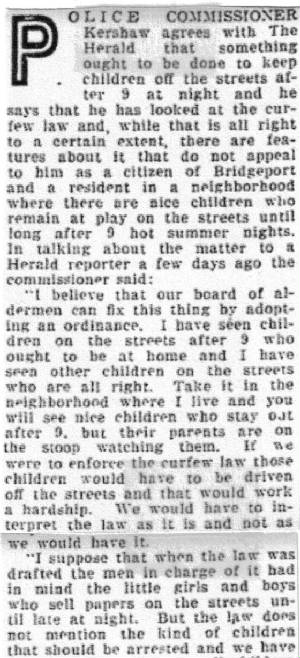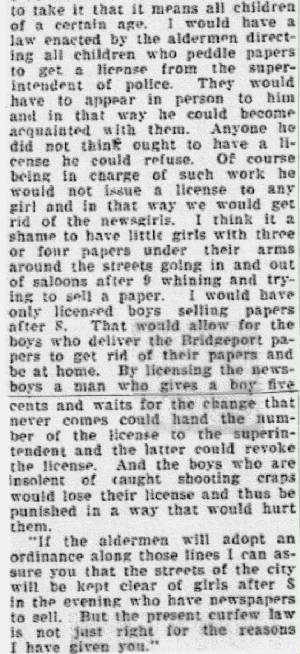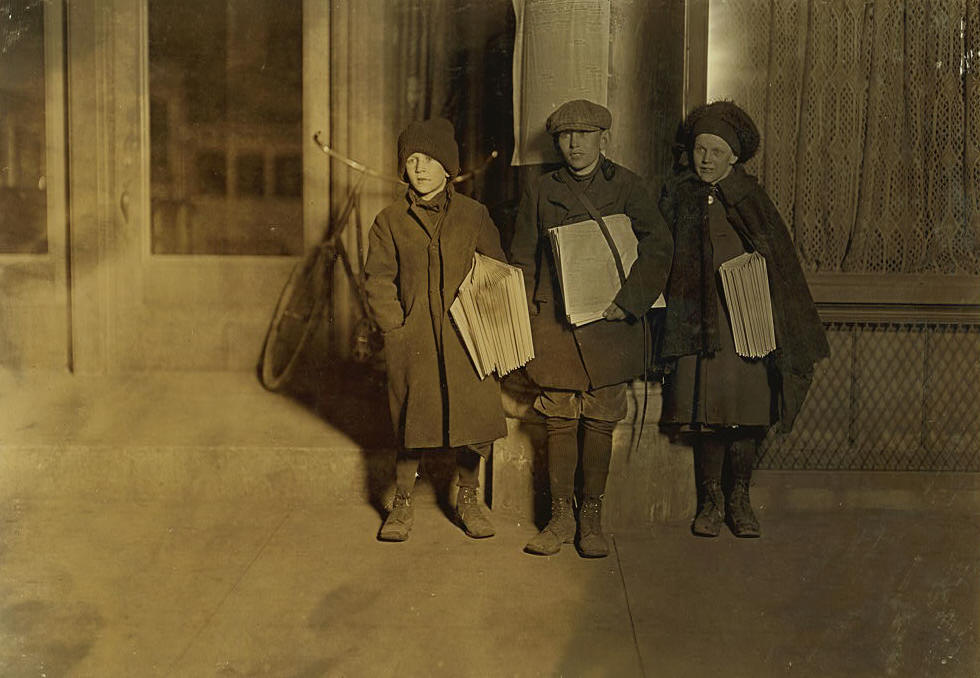
Lewis Hine caption: 5:30 A.M. Emma and her brother starting out to sell and peddle before school. They sell after school and on Saturday and Sunday also. Albert is 10 years old and been at it 1 year. Emma is 11 years old. She and Paul have been at it 2 years. Location: Bridgeport, Connecticut, March 1909.
“My father and I were always working on something, often with the boat. We did a lot of fishing around Block Island. He had a 42-foot boat. His boat was the last one to come out of the water in the winter, and the first one to go into the water in the spring.” -Norman Buecher, son of Albert Buecher
Nine months before Albert and Emma were photographed on a downtown street in Bridgeport, the following article appeared in the Bridgeport Herald, the newspaper that these two children may have been selling.
Lewis Hine spent about 10 days in early March taking pictures of newsboys and newsgirls in Hartford, New Haven and Bridgeport. He also testified at state legislative hearings regarding proposals to raise the age limit for newsboys and abolish newsgirls altogether. As my research has shown, Albert had a bright future awaiting him, but Emma would live only a few more years.
Albert Joseph Buecher was born in Bridgeport on March 21, 1899, the youngest of at least seven children born to Emil and Emma Buecher. Albert’s sister Emma was born about a year earlier than Albert. Parents Emil and Emma married in 1885, and sailed from France to New York City in 1887. They lived for a few years in Canada, and then returned to the US about 1895, settling in Bridgeport. Emil worked as a machinist. In 1914, the family moved to Stratford, an industrial town just east of Bridgeport.
Albert married Mildred Griffin in 1921, and after working as a toolmaker for a few years, started his own business with a brother. They had two children. Albert was still active in the business when he passed away in Stratford on October 13, 1977, at the age of 78. Mildred died in 2001 at the age of 99. Albert’s sister Emma, who was hawking newspapers alongside him in 1909, died at an undetermined date before 1920.
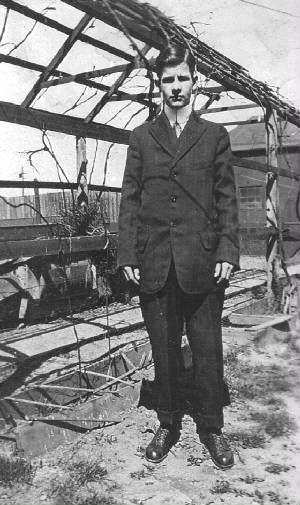
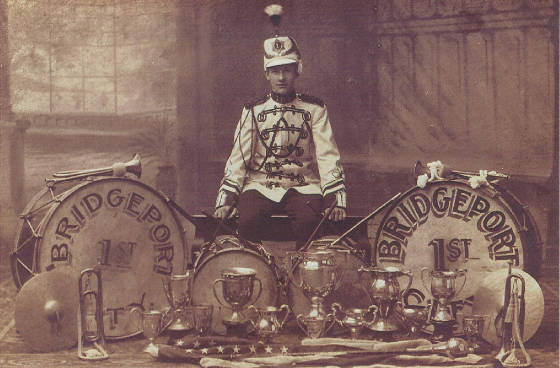
Edited interview with Norman Buecher (NB), son of Albert Buecher. Interview conducted by Joe Manning (JM) on March 9, 2011.
JM: What did you think of the photograph?
NB: It’s pretty amazing, because I don’t have any pictures of my father at that age. Emma, my father’s sister in the photo, died very young.
JM: Were you surprised that he was selling newspapers?
NB: Yes, but he never told me much about his childhood. He told me that he delivered ice, but not when he was that young. He went to McKinley School in Bridgeport, but I don’t know how far he went. He learned to play the drums there, and he was in the marching band that won the state title. He also played the drums at the Hippodrome Theater when they had silent movies with live music. My grandfather on my mother’s side ran the movie projector, and one of my mother’s brothers collected the tickets.
JM: When were you born?
NB: 1943.
JM: How many children did your parents have?
NB: Just my sister and me.
JM: Where were your parents living when you were born?
NB: In the Lordship section of Stratford, on Washington Parkway. My grandparents owned the house and lived on the first floor, and we lived on the second floor. Lordship is almost like an island. It’s right on Long Island Sound. It sticks out into the sound farther than any other part of the state.
JM: What was he doing for a living then?
NB: He and his brother Ernie owned and ran a company called Buswell Manufacturing. It was in Bridgeport. I think there were over 40 people working for them. They did metal stamping, and also tool and die for the military. He owned the business until he passed away in 1977. His brother retired in 1960.
JM: What happened to the business when he died?
NB: I run it now.
JM: At the same location?
NB: Yes.
JM: How many employees do you have?
NB: Nine. We do just stamping now, mostly washers, rubber and plastic.
JM: Who are some of your customers?
NB: Stant Manufacturing is one. They make radiator caps for all the automotive companies. We also make fuel pump gaskets for Bosch. They make power tools and many other things. They’re a huge company.
JM: Did you graduate from high school?
NB: Yes.
JM: Did you go to college?
NB: No, but my sister did. She graduated from the University of Connecticut.
JM: Did you work for your father when you were growing up?
NB: Yes. I was 19 when I started. I’ve been there 49 years.
JM: When did your father get married?
NB: He married Mildred Griffin in 1921.
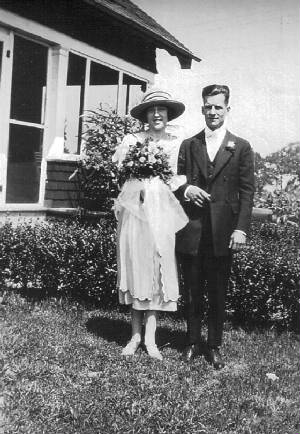
JM: At that time, what was your father doing for a living?
NB: I think he was employed as a conductor by the Lordship Trolley Company, but other information indicates that he might have been a toolmaker then. He learned the tool trade at Singer Manufacturing.
JM: In the 1930 census, they were renting a house next door to his parents, Emil and Emma, on Gorham Street in Stratford. Your father was a toolmaker. The 1929 city directory lists the same information.
NB: His parents moved to Lordship in 1914, and they lived on Washington Parkway (formerly Gorham Street). My parents rented a house on Lordship Road.
JM: Records indicate that your father’s mother died 1950. Did you know her very well?
NB: I hardly remember her. After she died, my father built a house of his own in Lordship. My grandfather died around the time I was born. When I was born, my father was already 44 years old. My parents were married 10 years when my sister was born. They had gone through some tough times during the Depression. They lived for about six months on one of the Thimble Islands in Long Island Sound. He fished and shot ducks, and he traded stuff for vegetables. When they were back on land, he hunted a lot, and he would give leftover ducks to people who needed food. He was a very generous man. If somebody needed help, he was there.
JM: Where were your parents living when your father died?
NB: On Pauline Street, also in Lordship. My mother lived to be 99.
JM: Did she work when you were growing up?
NB: No, but she had worked previous to that. When my uncle and father went into business, she helped them with the books. When I was born, my father was the commodore at the Pequonnock Yacht Club in Bridgeport. A while after I was born, maybe the early 1950s, he and my uncle took turns running the business every six months. So my father had a lot of time off. He was into boating and fishing. He also bought 100 acres of land in East Lyme (in eastern Connecticut). We did some farming. We raised a thousand turkeys. But mostly he was a boater. We used to go to Block Island a lot.
JM: Your father made out quite well for a newsboy.
NB: Yes, he did. But you wouldn’t know it by the kind of guy he was. Down by the shop, there used to be a little restaurant where he had his place at the bar for lunch. All the workers who were full of grease would come across the street, and he’d be right there with him.
JM: Was he in pretty good health up to the time he died?
NB: Yes, until a couple of years before that, when he had a stroke. All his brothers had heart problems.
JM: According to my records, your grandparents came to the US from France in 1887, and landed in New York City.
NB: I heard that my grandfather was French, and that he was born someplace right outside of Paris. Their oldest child, Edward, was born in France.
JM: Their next child, Emil, was also born in France; but the next child, Arthur, was born in Canada in 1891. They must have landed in the US, gone to Canada, and then back to the US. In 1895, Ernest was born in Connecticut.
NB: That’s interesting. I always thought they went directly to Canada first.
JM: What do you miss most about your father?
NB: My father and I were always working on something, often with the boat. When I was married, I used to go from Stratford to East Lyme to see him. He kept the boat in Snug Harbor, in Rhode Island. We did a lot of fishing around Block Island. He had a 42-foot boat. His boat was the last one to come out of the water in the winter, and the first one to go into the water in the spring. I have a house in Rhode Island now, a boat, and my own dock right in the front.
JM: It sounds like you are a lot like your father.
NB: I guess I am, but my boat is a lot smaller.
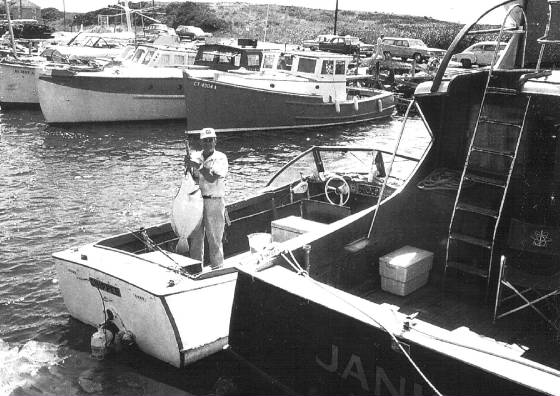
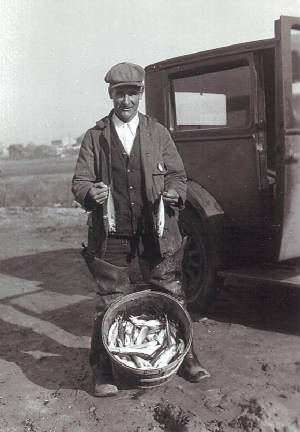
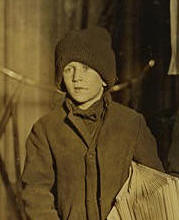
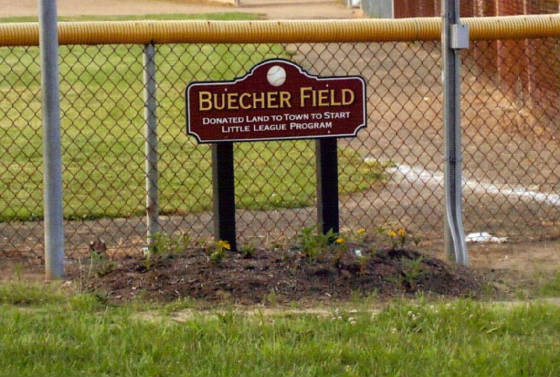
Albert Buecher 1899 – 1977
*Story published in 2011.
